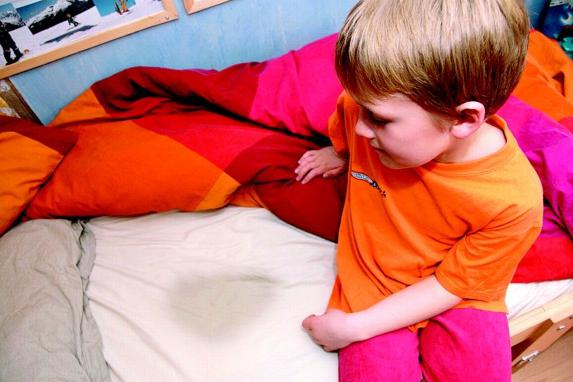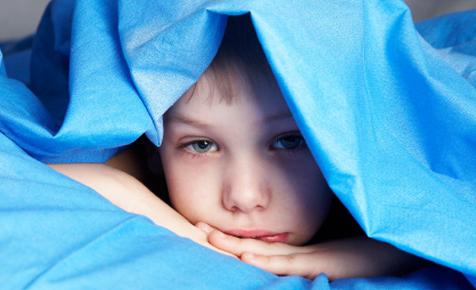Enuresis is characterized by involuntary urination, most often occurring at night, in children who should already be able to control the activity of their bladder. Numerous studies indicate that enuresis is not a disease, but a kind of transitional stage between the absent and existing control of physiological processes.

Specialists cannot accurately determine the age limit that separates involuntary urination, which is considered normal for a child, and pathological enuresis. It is believed that if the child, after reaching the age of five, still cannot control urination, it makes sense to give enuresis clinical significance and regard it as a pathology that requires the attention of doctors. This problem is typical for 15-20% of five-year-olds and 7-12% of six-year-olds. In rare cases, involuntary urination can occur in children under 12 years old, in very rare cases - in adolescents under 18 years of age. Moreover, enuresis in boys develops 1.5-2 times more often than in girls. People who had such a problem in childhood can experience it periodically in adulthood.
Enuresis in boys and girls: the main causes
- As everyone knows, in children the regulation of urination is carried out by the spinal center, so it happens involuntarily. At the age of two to five years, the child forms urination centers in the brain, which begin to interact with the spinal center, as a result, the process of urination gradually becomes fully controllable. When there is no interaction between the centers, the tone of the bladder is disturbed and enuresis (primary) develops.
- Some urological and infectious diseases can provoke chronic urinary retention, and enuresis can develop against its background. So, enuresis in boys can be a consequence of balanoposthitis, and in girls - vulvovaginitis.
- If one of the parents had such a problem, then the probability of its occurrence in the child increases. Studies have confirmed the fact that enuresis can occur due to a hereditary predisposition. Enuresis in boys occurs more often, including due to the fact that hereditary factors have a greater effect on them than on girls.
- Psychologically, injuries can provoke enuresis (secondary). In this case, it develops as a result of exposure to a child of some kind of stress factor, for example, moving, divorcing parents.
- Enuresis in boys and girls can also occur due to sound sleep. Some children sleep so soundly that they do not wake up even when urged to urinate.

Enuresis Treatment
Enuresis in boys at night suggests the same treatment as girls. Children are prescribed a special drinking regimen, eliminating the intake of fluid later than two hours before bedtime. Often the problem is caused by malfunctions in the release of vasopressin (a hormone), in which case children are prescribed to take its synthetic analogue, desmopressin, to cure enuresis (treatment may be longer in boys). If neurotic enuresis occurs, psychological correction is necessary with the help of vitamin therapy and the use of drugs that can improve metabolic processes in the brain. Comprehensive treatment should also include physiotherapeutic procedures, including special gymnastics and massage. Parents should not forget that the treatment of enuresis is a long process, so do not expect instant results from therapy. Be patient and do not put pressure on the child, otherwise the treatment process may be complicated.